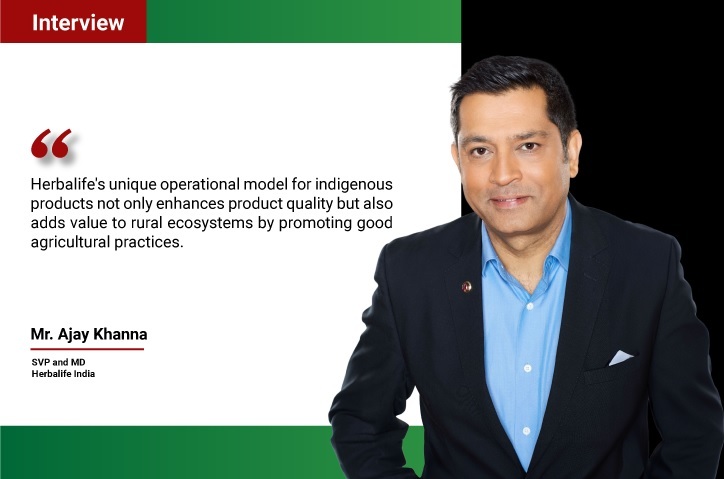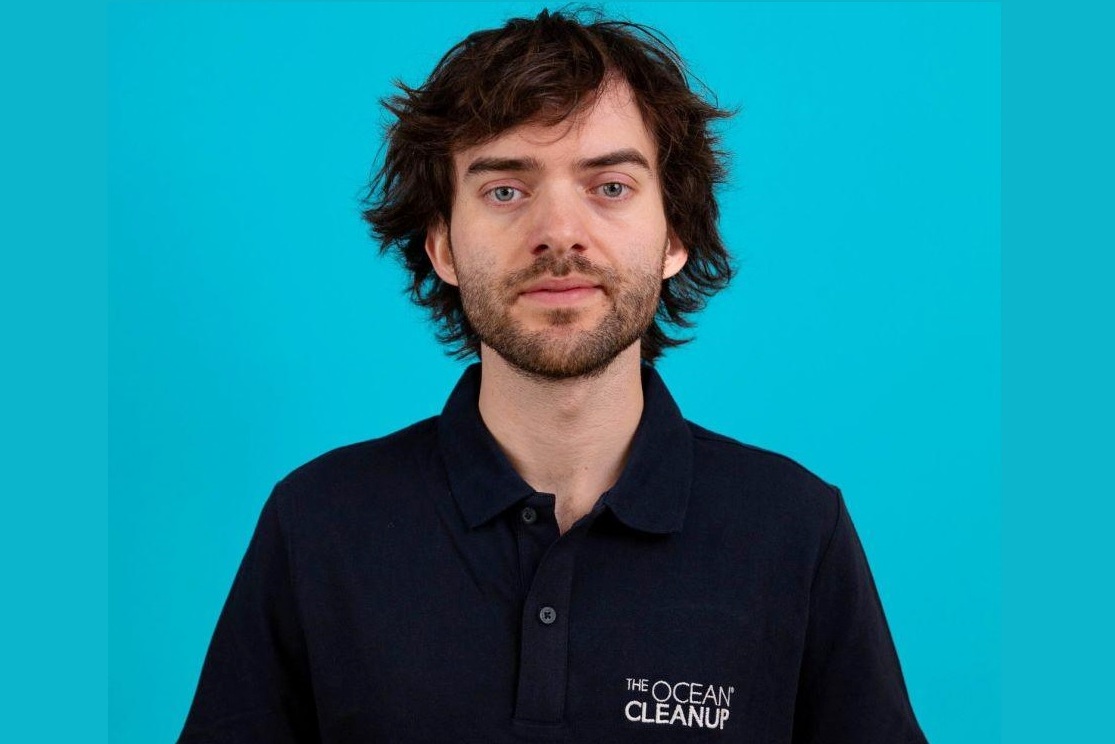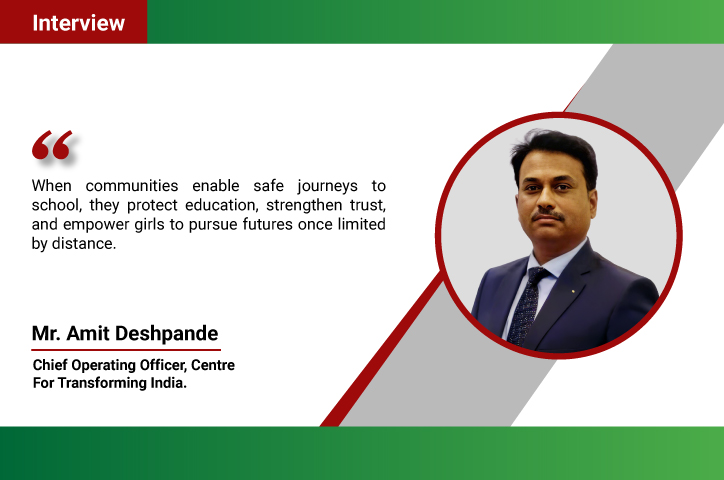In recent years, Ayurveda, the ancient Indian system of holistic medicine, has experienced a remarkable resurgence in global popularity. This renewed interest, however, raises crucial questions about how these time-honoured principles, rooted in harmony with nature, can be reconciled with the demands of modern sustainability practices.
In an exclusive interview with TheCSRUniverse, Mr. Ajay Khanna, Senior Vice President and Managing Director of Herbalife India, sheds light on the company's pioneering efforts to bridge this gap. Guided by its unwavering commitment to environmental stewardship, as reflected in its Global Sustainability Report and ESG Scorecard, Herbalife prioritizes sustainability across all aspects of its operations, encompassing everything from tackling climate change to reducing packaging waste.
Mr. Khanna's insights delve deeper into how Herbalife translates this commitment into its unique operational model for Ayurveda products, known as Vritilife. This model goes beyond simply ensuring consumer wellness; it actively promotes responsible agricultural practices and sustainable sourcing throughout the supply chain. At the heart of this approach lies a robust supply chain management strategy that emphasizes eco-friendly practices and ethical sourcing of all ingredients, including comprehensive training and support to the farmers.
This interview offers a glimpse into how Herbalife is leading the way in integrating sustainability into the realm of Ayurveda. To know more, please scroll down to read the full interview.
Q&A
Q. How is Herbalife India's operational model for Vritilife bridging the gap between traditional Ayurveda knowledge and modern sustainability practices? How are you empowering rural communities in this process?
A. Ayurveda is an ancient science of life with a long history, and its basic principles are valid even today. Herbalife's Vritilife products are based on Ayurveda principles and contain authentic herbs for specific health benefits, as mentioned in ancient Ayurvedic texts. We have a team of experts crafting these products. They contain scientifically researched key ingredients such as Triphala, Kalmegh, Tulasi, Brahmi, and Kutaki. All the ingredients are sourced with precision and are clinically tested to maintain quality.
While marking a significant milestone in its sustainability journey, Herbalife's unique operational model for indigenous products not only enhances the quality of its product but also adds considerable value to the rural ecosystem through the advancement of good agricultural practices.
Our ‘Distributor Difference’ is what sets us apart from many other players. All our products are sold exclusively through our independent distributors. Through this network and their contribution, we have reached the last mile where our products are accessible even in tier 2-3 cities.
The ingredients for Herbalife's indigenous products portfolio are sourced sustainably from 600+ acres of farmland across the four states. The initiative involves collaboration with hundreds of farmers trained and upskilled by the company across the states of Uttar Pradesh, Madhya Pradesh, West Bengal, and Karnataka.
Q. How does Herbalife India ensure fair trade and transparency in its supply chain for responsible sourcing, and how do these practices contribute to the company's broader environmental stewardship, social responsibility, and ESG initiatives?
A. As a global nutrition company, Herbalife is committed to its environmental sustainability goals, along with our focus on improving access in last-mile communities. It positions us as one of the leaders in creating impact through our responsible supply chain management strategy. Achieving true transparency requires more of a fundamental shift; our recent digital makeover has redefined how we do business. A fully digital supply chain gives us real-time information on our production versus requirements, connecting us globally. It lets us harness a vibrant spectrum of data, giving us market insights into consumer's buying behaviour.
Herbalife is embracing this evolution. We are weaving digital threads into our operations and leveraging our "seed to feed" strategy. This means working closely with farmers, vendors, distributors, and customers at every step, from seed to feed.
The company's Global Sustainability Report and ESG Scorecard highlight the unwavering commitment to sustainable sourcing, climate change mitigation, and responsible packaging. Moreover, we facilitate strategic partnerships with local farmers and suppliers to support sustainable practices while adhering strictly to quality standards for safety purposes. By adopting a comprehensive approach, we at Herbalife ensure that all products are of the highest quality, deliver the highest efficacy, and minimize environmental impact.
Q. Could you elaborate on Herbalife India's sustainability efforts across India specifically through Good Agricultural Practices (GAP) and Good Farming Collection Practices (GFCP)? What measures beyond these sustainability standards is Herbalife India taking to embrace ecological wellness through Vritilife fully?
A. Herbalife advocates for eco-friendly practices through its best agricultural practices and sustainable raw material sourcing. The ingredients for our products are obtained sustainably from the farmers, ensuring the best quality for the consumers and empowered livelihood for the rural communities.
As part of the larger initiative, we help farmers through training and equip them with essential knowledge and guidelines to meet the highest quality standards for some ingredients like Kalmegh, Tulasi, and Brahmi to ensure end product excellence. The efforts not only contributed to the economic development of farmers in rural areas but also aimed at enhancing their overall livelihoods. Additionally, the strategic focus on skill development has helped elevate the farmers' capabilities and played a crucial role in promoting sustainable agricultural practices and improving the last-mile connectivity across these regions.
Separately, as part of our CSR initiative, we collaborated with Sambhav Foundation to uplift communities and promote sustainable development across villages in India. More than 9,300 farmers across Ajmer, Vijayapura, and Vidisha have benefited, resulting in transformative changes for over 25,000 households across 84 villages.
Q. As a global nutrition giant, what role do you envision Herbalife India playing in addressing food security and combating hunger, particularly in rural communities?
A. As a global leader in nutrition, Herbalife is collaborating with leading non-profit partners to tackle the global challenges of hunger, food insecurity, and malnutrition and is aligned with the United Nation's SDGs, calling for bold action to end hunger in all of its forms by 2030. Zero Hunger goals include ending hunger, achieving food security, improving nutrition, and promoting sustainable agriculture.
We also work with the Food Safety and Standards Authority of India (FSSAI) to implement the "Eat Right India" campaign. Through this initiative, we have reached over 200 million people in India through food summits, melas, walkathons, and social media engagement across 12 states. We have turned high-profile establishments like the Indo-Tibetan Border Police headquarters, the Indian Space Research Organizations (ISRO), and State Secretariats offices into "Eat Right Campuses" where people can make safe, healthy, and balanced diet choices.
In line with the Eat Right Campaign, FSSAI aims to raise awareness about the importance of nutrition, good food habits, lifestyle choices, and preventive healthcare.
Q. How is Herbalife India innovating to overcome logistical and infrastructural challenges in ensuring equitable access to its products?
A. Herbalife has an active localization program that aims to help our suppliers deliver high-quality ingredients that meet our global standards. To instill trust in consumers, Herbalife enforces rigorous quality control measures that adhere to the highest industry standards. These measures ensure that all products are safe for consumption and meet label claims, positively impacting consumers' well-being. We strive to minimize our impact on the planet by advocating responsible sourcing methods, waste reduction initiatives, and energy conservation efforts throughout our operations.
With the launch of our global "Herbalife One" digital platform, we can access even more real-time data and insights into product logistics and customer insights. The platform is instrumental in shaping our global supply chain infrastructure and facilitating modifications in supply planning. Innovations like these underscore our commitment to adapting to changing dynamics and leveraging data-driven strategies to enhance our supply chain performance.
Q. Can you elaborate on CSR initiatives that go beyond selling products, aiming to improve livelihood opportunities and social security for farmers and communities?
A. We have many ongoing CSR initiatives. Herbalife's social alliance with Katha (a non-profit organization) enables tech-enabled and high-quality education for children from last-mile communities in 9 states and across 15 locations. An independent impact study and baseline assessment across these locations by Katha in association with Herbalife showed that almost 40% of the children from impoverished backgrounds were below their grade level in reading and writing, and 50% of children could not perform arithmetic or numeracy functions. In line with the National Education Policy (NEP) 2020, through these Kathashalas, 3000+ children have been provided with holistic nutrition and supplementary education.
Kathashala is a one-of-a-kind pedagogical structure that allows children from such communities to engage in a holistic learning environment. The learning approach focuses on enhanced classroom curricula and arts, culture, and sports for increasing access to economic opportunities. The initiative also enables income-generation opportunities for local educators and artists in remote districts while simultaneously developing the educational ecosystem of children from marginalized communities. The alliance enabled children from last-mile communities to receive nuanced education, from cultural activities to robotics and increased their access to the current economic opportunities.
We also have an ongoing partnership with the Indian Institute of Management Bangalore to establish a Center of Excellence in Sustainable Supply Chain Management. The partnership's primary objective was to act as a forum to initiate interaction and dialogue on sustainable supply chain-related issues, challenges, and solutions among industries, government, academia, and related agencies and ultimately help organizations achieve their net zero goals. The detrimental effects of non-biodegradable plastics on the environment have become increasingly evident in recent years. To address this concern, Herbalife collaborated with IIM Bangalore to explore sustainable and compliant alternatives for reducing the reliance on non-biodegradable plastics, thus mitigating the negative environmental impact.
Q. Can you share innovative best practices that Herbalife India is pioneering in applying sustainability principles to the traditional knowledge of Ayurveda, setting a new benchmark for the industry
A. At Herbalife India, our Center of Excellence was recently set up as a Genomics Testing lab, marking a significant milestone in herbal and botanical raw material testing and authentication. Renowned as the "Gold Standard" in botanical authentication, this pioneering initiative sets a new benchmark for excellence. Spearheaded by Herbalife, a global leader in such testing methodologies, the lab will be instrumental in shaping industry standards worldwide. Through active participation in scientific forums like the Association of Official Analytical Collaboration International, Herbalife drives innovation and ensures industry transparency and accountability. Notably, India now stands at the forefront with comparable capabilities, showcasing a dedication to cutting-edge technology and rigorous quality control measures. We use genomic testing to qualify herbal ingredients with precision and authenticity. This is critical when selecting raw materials for all our products.



















